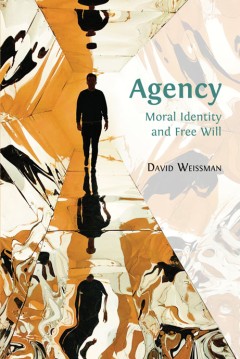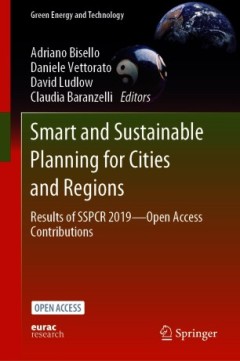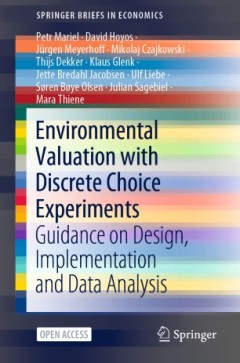Filter by

A Victorian Curate : a study of the life and career of the Rev. Dr John Hunt
The Rev. Dr John Hunt (1827-1907) was not a typical clergyman in the Victorian Church of England. He was Scottish, of lowly birth, and lacking both social connections and private means. He was also a witty and fluent intellectual, whose publications stood alongside the most eminent of his peers during a period when theology was being redefined in the light of Darwin’s Origin of Species and ot…
- Edition
- -
- ISBN/ISSN
- 9781800641549
- Collation
- xi, 249 p. : ill. ; 15.6 cm.
- Series Title
- -
- Call Number
- 230 YEA a

Is behavioral economics doomed?: the ordinary versus the extraordinary
It is fashionable to criticize economic theory for focusing too much on rationality and ignoring the imperfect and emotional way in which real economic decisions are reached. All of us facing the global economic crisis wonder just how rational economic men and women can be. Behavioral economics — an effort to incorporate psychological ideas into economics — has become all the rage. This bo…
- Edition
- -
- ISBN/ISSN
- 9781906924942
- Collation
- vii, 154 p. ; ill
- Series Title
- -
- Call Number
- 330.019 LEV i

Life histories of etnos theory in Russia and beyond
Life Histories of Etnos Theory in Russia and Beyond makes a powerful argument for reconsidering the importance of etnos in our understanding of ethnicity and national identity across Eurasia. The collection brings to life a rich archive of previously unpublished letters, fieldnotes, and photographic collections of the theory’s early proponents. Using contemporary fieldwork and case studies, t…
- Edition
- -
- ISBN/ISSN
- 9781783745463
- Collation
- xix, 425 p. : ill. : ind. ; 24 cm
- Series Title
- -
- Call Number
- 305.8 LIF l

Industry 0.4 and regional transformation
This volume brings together expert contributors to explore opportunities and challenges that Industry 4.0 is likely to pose for regions, firms and jobs in Europe. Drawing on theory and empirical cases, it considers emerging issues like servitization, new innovation models for local production systems, and the increase in reshoring.
- Edition
- -
- ISBN/ISSN
- 9780429057984
- Collation
- xviii, 257 p. : ill.
- Series Title
- -
- Call Number
- 338.064094 BAI i

Curriculum Reform in the European Schools
The European Schools were founded nearly sixty years ago in the aftermath of World War Two, with the first being established in Luxembourg, which, together with Brussels and Strasbourg, is one of the three official capitals of the European Union and the seat of the European Court of Justice. There are now fourteen schools in seven countries serving over 25,000 students. Designed for the ch…
- Edition
- -
- ISBN/ISSN
- 9783319714646
- Collation
- 181p. ; ill.
- Series Title
- -
- Call Number
- LB2806.15 SAN c

Agency: Moral Identity and Free Will
There is agency in all we do: thinking, doing, or making. We invent a tune, play, or use it to celebrate an occasion. Or we make a conceptual leap and ask more abstract questions about the conditions for agency. They include autonomy and self-appraisal, each contested by arguments immersing us in circumstances we don’t control. But can it be true we that have no personal responsibility for …
- Edition
- -
- ISBN/ISSN
- 9781783748778
- Collation
- 210 p. : 2 B&W illustrations.
- Series Title
- -
- Call Number
- 123.5

On learning : a general theory of objects and object-relations
This is a philosophical work that develops a general theory of ontological objects and object-relations. It does this by examining concepts as acquired dispositions, and then focuses on perhaps the most important of these: the concept of learning. This concept is important because everything that we know and do in the world is predicated on a prior act of learning. A concept can have many meani…
- Edition
- -
- ISBN/ISSN
- 9781800080027
- Collation
- ix, 320 p. ; ill
- Series Title
- -
- Call Number
- 370.1523 SCO o

Smart and sustainable planning for cities and regions : results of SSPCR 2015
This open access book offers a selection of research papers and case studies presented at the 3rd international conference “Smart and Sustainable Planning for Cities and Regions”, held in December 2019 in Bolzano, Italy, and explores the concept of smart and sustainable planning, including top contributions from academics, policy makers, consultants and other professionals. Innovation pr…
- Edition
- -
- ISBN/ISSN
- 9783030577643
- Collation
- xvii, 307p. : ill.
- Series Title
- -
- Call Number
- 307.1216 SMA s

The future of learning institutions in a digital age
This John D. and Catherine T. MacArthur Foundation Report is a redaction of the argument in our book-in-progress, currently titled The Future of Thinking: Learning Institutions in a Digital Age. That book, to be published in 2010, is merely the concrete (paper and online) manifestation and culmination of a long, complex process that brought together dozens of collaborators, face to face and vir…
- Edition
- -
- ISBN/ISSN
- 9780262513593
- Collation
- xi, 67 p.; ill
- Series Title
- -
- Call Number
- 371.3344678 THE t

Environmental valuation with discrete choice experiments : guidance on design…
This open access book offers up-to-date advice and practical guidance on how to undertake a discrete choice experiment as a tool for environmental valuation. It discusses crucial issues in designing, implementing and analysing choice experiments. Compiled by leading experts in the field, the book promotes discrete choice analysis in environmental valuation through a more solid scientific basis …
- Edition
- -
- ISBN/ISSN
- 9783030626693
- Collation
- xiii, 129p. : ill.
- Series Title
- -
- Call Number
- 333.7 ENV e
 Computer Science, Information & General Works
Computer Science, Information & General Works  Philosophy & Psychology
Philosophy & Psychology  Religion
Religion  Social Sciences
Social Sciences  Language
Language  Pure Science
Pure Science  Applied Sciences
Applied Sciences  Art & Recreation
Art & Recreation  Literature
Literature  History & Geography
History & Geography